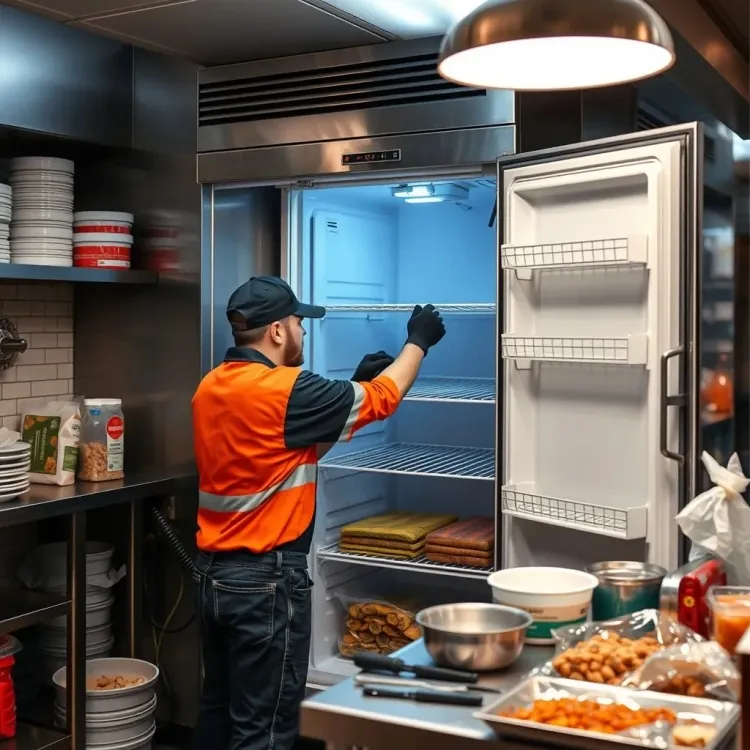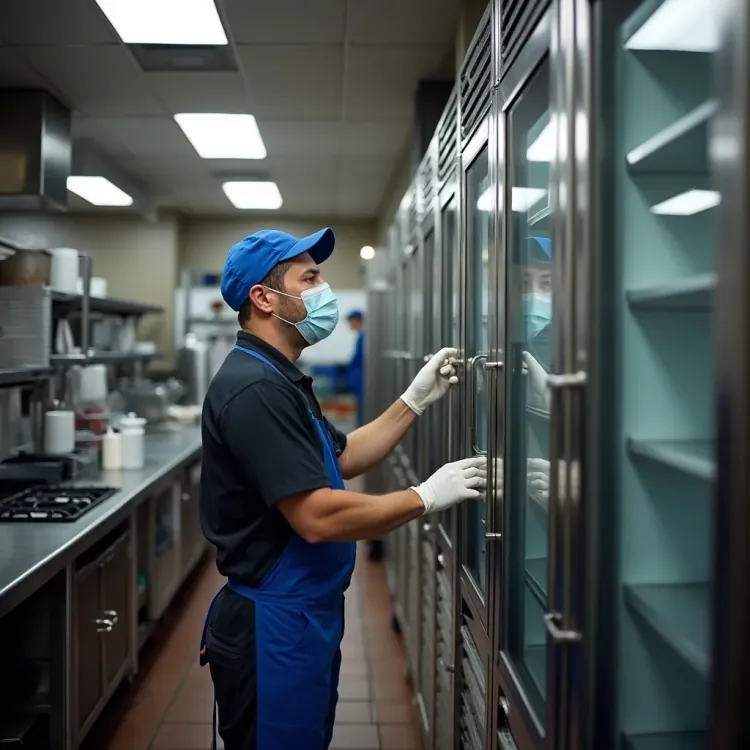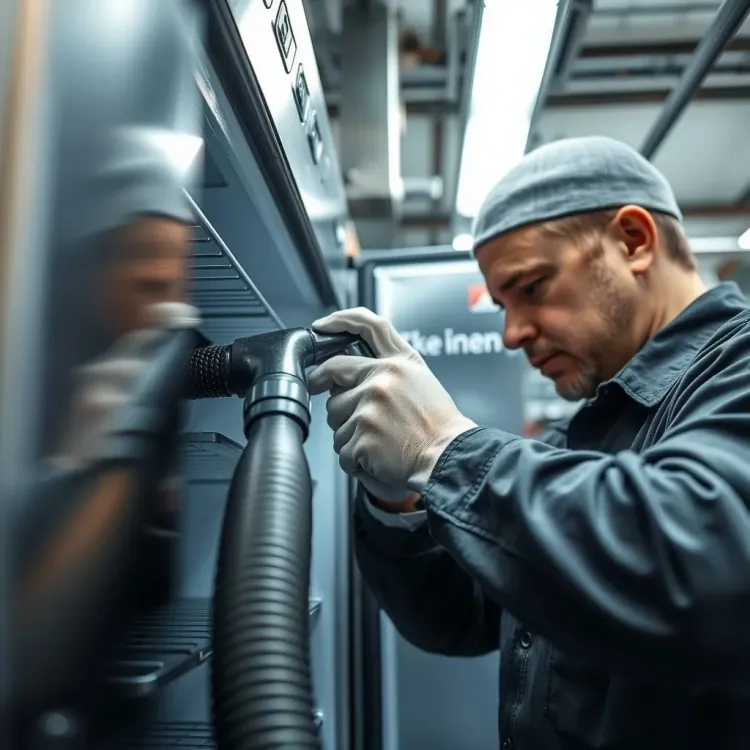Commercial Refrigeration Repair: Your Go-To Guide for Reliable Fixes and Services Near You
Looking for expert commercial refrigeration repair near me? Explore tips, fixes, and trusted services to keep your refrigeration units running efficiently.

Imagine walking into your business and discovering your commercial refrigerator has stopped working overnight. Not only could you lose inventory worth hundreds or even thousands of dollars, but the disruption might affect your customers' trust in your services. Fortunately, with the right knowledge and support, commercial refrigeration repair doesn’t have to be overwhelming. Whether you're seeking immediate fixes or long-term solutions, this guide will equip you with practical tips and insights to ensure your refrigeration units stay operational when you need them most.
Recognizing Signs Your Commercial Refrigerator Needs Repair
Your commercial refrigeration unit works hard to preserve food, beverages, or perishable items. But what happens when it starts showing signs of trouble?
Key Indicators of a Problem:
- Temperature Fluctuations: If items aren’t staying cold enough, it could signal thermostat or compressor issues.
- Unusual Noises: Grinding, clicking, or humming sounds often point to motor or fan problems.
- Frost Buildup: Excessive frost inside the unit may indicate a faulty defrost system.
- Leaking Water: Pools of water around your fridge might mean blocked drains or a refrigerant issue.
- Increased Energy Bills: If your electricity costs spike unexpectedly, an overworking refrigeration unit might be to blame.

Common Issues in Commercial Refrigeration Units
Whether it’s a restaurant, grocery store, or medical facility, refrigeration problems can vary. Understanding these issues helps you act quickly.
Frequent Problems:
- Compressor Failures: The heart of the system, a malfunctioning compressor can lead to warm temperatures.
- Refrigerant Leaks: Insufficient refrigerant impacts cooling efficiency and strains the system.
- Blocked Coils: Dirty or blocked condenser coils reduce airflow, leading to overheating.
- Door Seal Damage: A worn or torn gasket allows warm air to seep in, reducing cooling efficiency.
Quick Fixes for Minor Problems:
- Clean condenser coils with a brush or vacuum.
- Check door seals for gaps and replace damaged gaskets.
- Ensure air vents are unobstructed for optimal airflow.
Finding Trusted Commercial Refrigeration Repair Near Me
Searching for reliable repair services can feel daunting, especially in emergencies. Here's how to find professionals you can trust.
Tips for Choosing a Service:
- Look for Certifications: Technicians with HVAC or EPA certifications ensure expertise in handling refrigerants and systems.
- Read Reviews: Online reviews on platforms like Yelp or Google give insights into customer experiences.
- Check Availability: Emergencies require prompt responses, so prioritize companies offering 24/7 service.
- Ask About Warranties: Reliable repair services often back their work with warranties or guarantees.
Pro Tip: Local companies often have faster response times. Searching for commercial refrigeration repair near me can connect you with nearby professionals ready to help.

DIY Troubleshooting for Commercial Refrigeration Issues
While some issues require professional help, others can be resolved with basic troubleshooting.
Steps to Try First:
- Check the Power Supply: Ensure the fridge is plugged in and the circuit breaker hasn’t tripped.
- Inspect the Thermostat: Adjust the temperature settings to see if it responds.
- Clean the Condenser Coils: Dust buildup can hinder cooling efficiency.
- Examine Door Seals: Use a flashlight test to identify gaps in the gasket.
- Defrost the Unit: If frost is excessive, unplug the fridge and let it defrost for several hours.
Preventative Maintenance for Long-Term Performance
Regular maintenance is key to avoiding costly repairs and prolonging the lifespan of your refrigeration units.
Best Practices for Maintenance:
- Schedule Routine Inspections: Have a professional check your system biannually.
- Clean Components: Wipe down interior shelves and clean condenser coils monthly.
- Monitor Temperatures: Invest in a digital thermometer to track internal temperatures accurately.
- Avoid Overloading: Overstuffing the fridge can block airflow and strain the system.
| Maintenance Task | Recommended Frequency | Tools Needed |
|---|---|---|
| Cleaning Coils | Every 3 months | Brush or vacuum |
| Door Seal Inspection | Monthly | Flashlight |
| Professional Checkups | Twice a year | Service provider |
| Checking Temperature Logs | Weekly | Digital thermometer |

Benefits of Professional Repair Services
While DIY fixes are useful, professional services ensure long-lasting results.
Why Opt for Professionals?
- Expert Diagnosis: Technicians can pinpoint complex problems quickly.
- Safe Repairs: Handling refrigerants or electrical components requires specific skills and certifications.
- Cost-Effective: Professionals can prevent small issues from escalating into expensive repairs.
If your search for commercial refrigeration repair near me feels overwhelming, prioritize experience and responsiveness.
When to Replace Your Commercial Refrigerator
Sometimes, repairs may not be enough. Recognizing when to replace your unit is crucial to avoid unnecessary expenses.
Signs Replacement Is Needed:
- Frequent Breakdowns: Constant repairs may outweigh the cost of a new unit.
- Age of the Unit: Most commercial refrigerators last 10-15 years.
- Energy Inefficiency: Older models consume more energy compared to newer, energy-efficient options.
| Repair vs Replacement Considerations | Factors to Evaluate |
|---|---|
| Repair | Minor issues, affordable |
| Replacement | Frequent failures, old unit |
Sources
FAQs
1. How much does commercial refrigeration repair typically cost?
Repair costs vary based on the issue, but common fixes range between $150 to $500.
2. How do I find reliable commercial refrigeration repair near me?
Search online for certified local technicians, check reviews, and prioritize those offering 24/7 service.
3. What are the most common issues with commercial refrigerators?
Temperature fluctuations, refrigerant leaks, and blocked coils are among the most frequent problems.
4. How can I extend the lifespan of my commercial refrigerator?
Regular maintenance, including cleaning coils and monitoring temperatures, ensures better performance over time.
5. What should I do if my commercial fridge stops working suddenly?
Check the power source, thermostat, and condenser coils. If these don’t resolve the issue, contact a professional.
What's Your Reaction?




















